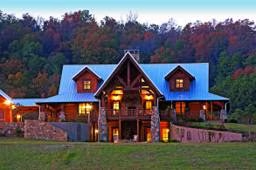
Should we hire an Energy Rater?
RESNet, a non-profit organization based in California that develops industry standards and training to conduct home energy ratings, has developed the Home Energy Rating System, or “HERS.” The HERS rating ranges from 100, which would match your home against an average home’s energy usage in your area. Scores descend from there, with 0 equaling a “net zero” home, meaning that it produces and consumes an equal amount of energy. Negative number scores indicate that the home is producing more energy than it needs.
There are a number of benefits to achieving a low HERS score. The first and biggest benefit is that your home will be more energy efficient, more comfortable and cost less money to operate year-round. A home with a low HERS score can also help you save in other ways. Studies have shown that energy efficient homes enjoy a higher resale value. Your bank loan officer may also note another study that showed energy efficient homes have an average 32% less chance of mortgage default. So, documenting your home’s energy efficiency can make your home more valuable and a more attractive risk to lenders.
For new construction, it’s a good idea to contact a RESNet rater while you’re still in the design phase. The energy rater can work closely with the design department and your builder to evaluate the plans, solar orientation, HVAC specifications, windows, doors and insulation to develop an initial HERS score. The rater can then evaluate and advise possible changes that might yield higher energy savings. All the information is entered into the RESNet software and stored for future reference in tabulating the final score.
After your plans are finalized, the Home Energy Rater will inspect the home at least two times: first, when the exterior envelope is completed but prior to interior finishing with cedar tongue-and-groove paneling or wallboard. And again once construction is completed.
The average cost for a start-to-finish new construction consultation is between $400-800. The final figure is often based on geographic location, as well as the size and complexity of the home. RESNet’s website has a locator tool [http://www.resnet.us/directory/search] where you can search for RESNet Energy Raters in your area. Any professional located on the website is certified and up-to-date with training.
We encourage everyone to include energy auditing in their home construction budget. It really is money well spent!
Published on: July 27th, 2017
Like what you read? Need more information? Achieving energy efficiency for you log homes goes beyond the logs. We've asked industry experts, Katahdin Cedar Log Homes to help with the answers. Click here to see more.











